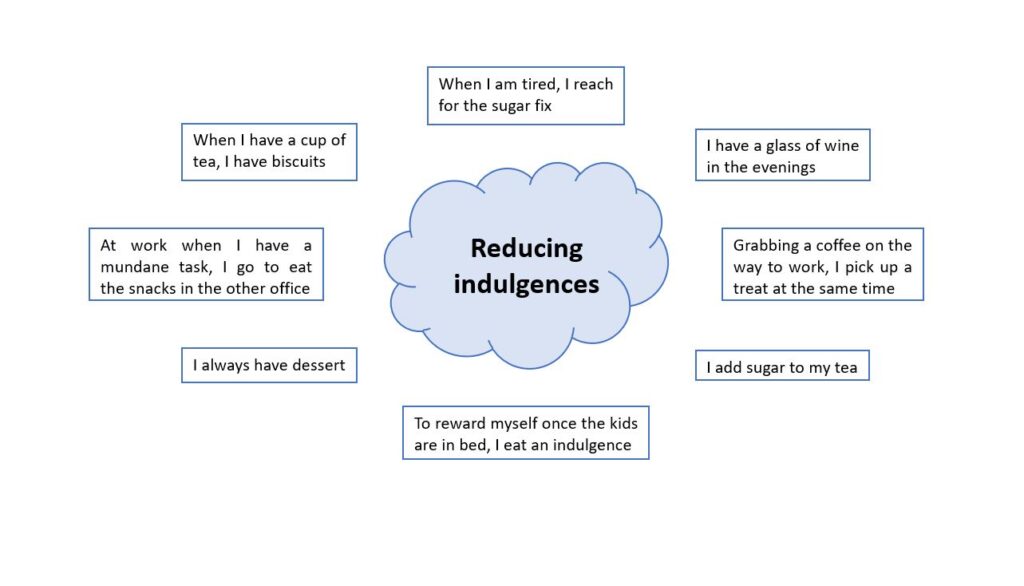A new year, a new you… Or is it just a new you for a month?

For many people, the new year is an opportunity for them to reflect on the past year and start to think about making changes for the next one.
Some of your resolutions might be one of the following:
- “I am going to do more exercise.”
- “I am going to cut out junk food.”
- “I am going to eat less meat.”
- “I am going to reduce my screen time.”
- “I am going to go to bed earlier.”
- “I am going to lose weight.”
The list goes on and on, and most of the changes are probably linked to improving your health and wellbeing. However, research suggests that most people who decide to make a change in the New Year are not able to keep doing it, often stopping within a week.
But these positive changes are usually important. The question is: how do we set a goal and keep to it?
Well, we should focus on changing habits. Evidence suggests that if we can change habits, we are more likely to keep making the changes.
A habit is something that you do automatically. Things like brushing your teeth when you get up after breakfast, having two biscuits with your cup of tea, or finishing your plate at dinner. Now there is not necessarily one single effective way to change habits, but I have pulled together the best available evidence in this blog post.
First of all, you need to set a goal. What would you like to do? Is it to be more physically active, eat healthier foods, or take your Vitamin D?
Once you have set your goal, you then need to monitor your behaviours. Self-monitoring to a goal is one of the most successful ways to change behaviour.
Let’s look at an example from one of the studies I conducted about helping people to reduce the indulgences they ate. The goal was to say no to indulgences seven times a week. In the brainstorm diagram below, the statements show the typical times and settings participants would consume their indulgences.

Have a go at brainstorming in the same way for your goal to help you identify the habit changes you need to make in order to succeed. Once you have identified them, the next step is to try and break them. The best tip is to focus on the one you believe is easiest first.
There are potentially three ways you can change your habits:
- Introduce good habits
By introducing a good new habit, it may push out some of the bad habits. For example, if you wanted to go to the gym before work but always feel too tired in the mornings, the new habit would be to go to bed earlier. This might mean you get more sleep and therefore feel refreshed and more likely to get yourself to the gym.
2. Untangle the habit
There are three different things you can do here. First, you could remove the prompt that makes you perform the habit. For example, if you grab a coffee on the way to work and pick up a treat at the same time, instead prepare your coffee at home or find a way to make a coffee at work. This will reduce temptations.
As well as removing the prompt of the behaviour you can also make the behaviour harder to do. Many of our participants reported that they didn’t have biscuits or ice creams in the house. But if they were easily accessible, they would eat them. If you don’t have them in the house, you either have to go to the shop to buy them or bake them yourself (which requires you to have all of the ingredients).
The other thing you can do is what we call adjusting the motivation. If you increase the mental effort required, then you are less likely to want to do it. For example, by recording what you eat, you’ll be required to increase your mental load then just simply eating the indulgence.
3. Swap a habit
If the first two options don’t work for you, then you can try and swap to a different habit; however, sometimes it is quite difficult to find another habit to change to for an indulgence as they are normally quite desirable. You have to choose something that you like doing and is easy and fun for you. Consider dedicating one hour you’d usually spend mindlessly scrolling on your phone to read a new book, call a friend, or go for a walk.
I encourage you to have a go at changing your habits and seeing if this supports your 2022 goals. I wish you the best of luck and don’t forget, social support in the form of friends, colleagues and family can also increase the likelihood of achieving your ambitions. Happy New Year!
Dr Claire Madigan
Senior Research Associate for The Centre for Lifestyle Medicine and Behaviour (CLiMB)
Prior to her academic career, Claire worked in public health, commissioning weight management services and working on the childhood obesity strategy in Hampshire. She completed her PhD at the University of Birmingham in 2014 and then went on to hold positions at the University of Sydney and the University of Oxford. Claire has expertise in weight management and clinical trial management with experience in behavioural and investigational medicinal trials. She has supervised two PhD students to completion.
Additional resources
Health and Wellbeing
Wellbeing means being in a positive physical, social and mental state. Wellbeing is important to us as happy, healthy people who achieve harmony in their work / life mix are more creative, productive and help to create a great place to work.